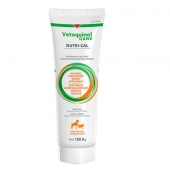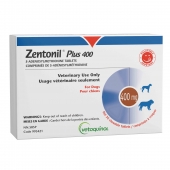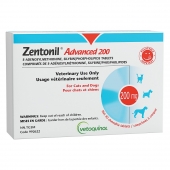What your veterinarian can really do for your pet
Do you love your pets and care about their well-being?. The animal-human bond is very important to you. You are not alone on this! Veterinarians and their teams share your passion. The role of the veterinarian is to maintain the health and well-being of all species and as such, to contribute to the health of the public.
Whether it be through direct interaction with pets, food safety surveillance, monitoring and prevention of diseases that can be transmitted from animals to humans, or through their research, veterinarians are animal health experts. They are the ones who are best equipped to help you keep your pet healthy.
If you have any concerns about your pet, your veterinarian is the first person to consult. Here is why:
Competence
To practice their profession, veterinarians must attend and pass courses at universities that offer a veterinary medicine program.
These courses include preventive medicine, curative medicine, surgery, anaesthesia, diagnostic methods, pharmacology, nutrition, behaviour, and all other related disciplines.
Once they have completed their courses, veterinarians must obtain permission to practice from their professional order. To achieve this, they must pass exams that demonstrate their competency, and take an oath to abide by their order’s code of ethics. The professional order renews a veterinarian’s permission to practice every year, once it has been proven that he or she has maintained proficiency through continuing professional development.
A veterinarian who commits serious medical or ethical errors may lose his or her permission to practice.
Prevention
It is a well-known fact that the best way to stay healthy is to avoid getting sick! Visiting a veterinarian when your pet is young and healthy will enable you to benefit from your veterinarian’s expertise in the prevention of viral, parasitic or other diseases.
Furthermore, your veterinarian’s nutritional knowledge can guide you in selecting a diet adapted to your pet’s specific needs. A veterinarian and the members of his or her team can also provide you with excellent advice on daily care for the prevention of tooth decay or ear issues.
Last but not least, your veterinarian can make sure your dog or cat is healthy in both mind and body, through observations and informed recommendations!
Avoiding needless suffering
Despite all our wonderful care, there are times where our dog or our cat feels unwell or has been injured an accident.
Is it necessary to see a veterinarian? Just calling the clinic can help you make an informed decision. By acting quickly, you can prevent a situation requiring attention from continuing or deteriorating, thereby causing your pet unnecessary pain and suffering.
General veterinarians are well-versed in dermatology, ophthalmology, orthopedics, gastro-enterology, and dentistry, to name just a few areas. This allows them to quickly identify the origins of a problem and recommend adapted solutions based on clinical and scientific data.
Aging is not an illness. The aging process is nonetheless synonymous with several physical and mental changes and symptoms. With regular monitoring, the members of a veterinary group can help to slow the progression and alleviate the effects of these changes.
Financial benefits
The more we prevent disease, and the more we quickly consult to prevent a condition from getting worse, the better our chances of the associated costs being lower.
In fact, treating gastroenteritis in a cat is much cheaper if the consultation takes place within the first 24 to 48 hours instead of waiting, and risking the cat requiring hospitalization for dehydration.
Moreover, pet insurance programs reimburse certain preventive therapies and other treatments when provided by a veterinarian.
Free advice
Several veterinary clinics now offer websites with tons of free advice and information. What a great way to get some valuable information!
As we just explained, your veterinarian is an animal health expert. He or she has the necessary knowledge and experience to satisfy your pet’s needs, and is therefore your best, first-line resource!






